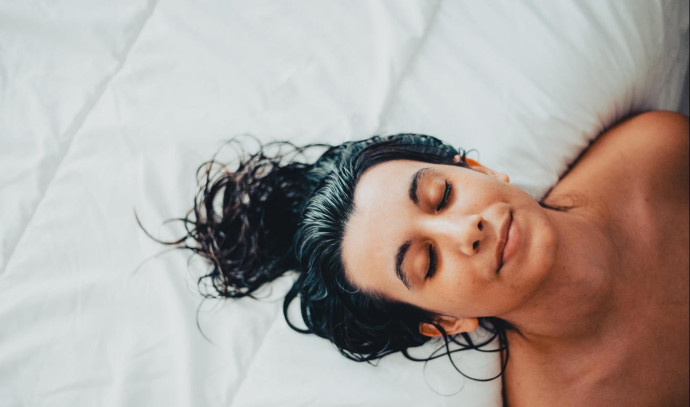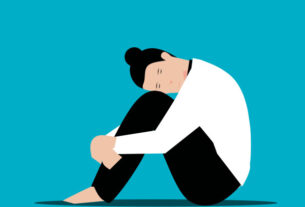Many habitually shower before bedtime, but sleep experts recommend leaving a gap between your nightly bath and hitting the hay. One of the reasons might be this disgusting factor that convinces you to break the habit of going to bed with damp hair.
Washing your hair before bedtime often leads to the choice of letting it air dry naturally rather than using a towel or hairdryer to speed up the process. However, this seemingly small concession can harm your hair and overall health, making you unnecessarily cold and even fostering mold growth on your pillows and sheets. Max Stephens, a sleep expert from The Sleep Checklist, sheds light on the dangers of sleeping with wet hair and offers alternatives for those struggling to give up this habit.
Max explains that wet hair is structurally weaker and more prone to breakage, especially when subjected to the pressure of tossing and turning during sleep.
He says, “As you toss and turn during your sleep, your hair is put under pressure. This pressure can cause your hair to snap, and when it is wet, it’s much easier to cause damage to it than if it were dry.”
Additionally, damp hair can encourage bacterial growth on your bedding and pillow, potentially leading to facial acne and dandruff.
Worse still, if mold forms due to the moisture, it can cause respiratory problems.
Stephens advises: “If you do have to go to bed with wet hair, you should invest in waterproof pillowcases as this will stop the damp from penetrating your pillows and stop harmful mold and bacteria from building up.
“Smooth fabrics cause less friction when you toss and turn when sleeping, and they also help retain the natural oils within your hair, resulting in healthier hair.”
In a time when staying warm is a priority, going to bed with wet hair only makes your body colder, prompting you to crank up the heating to compensate for the heat loss. Stephens also points out that your electricity costs will rise as you spend more time styling your hair in the morning.
He notes, “While running the hair dryer may seem like an additional cost you don’t need right now, letting your hair dry overnight is not only bad for you, but it will also take longer to style back into shape.”
Could sleeping with wet hair make you sick?
Dr. William Schaffner, a professor of medicine at Vanderbilt University Medical Center specializing in infectious diseases, dismisses the idea and says such claims were debunked long ago.
Catching a cold is related to how viruses that affect the respiratory tract reproduce and become contagious, rather than going to bed with wet hair, he says.
So, what are the alternatives?
Stephens recommends a simple strategy to reduce the risks associated with sleeping with wet hair: reduce how often you wash your weekly.
Additionally, he suggests that letting your hair air-dry for an hour before bedtime can be beneficial. It’s advisable to wash your hair earlier in the day and adjust your schedule to avoid going to bed with wet hair, benefiting your hair’s quality and overall health.
Despite the potential downsides, countless people regularly go to bed with wet hair and experience no issues. Some research suggests that cooling the head at night can reduce nighttime metabolic activity in the brain, promoting more profound and restorative sleep. So, while minor health concerns may be associated with sleeping with wet hair, they’re unlikely to keep you up at night.



